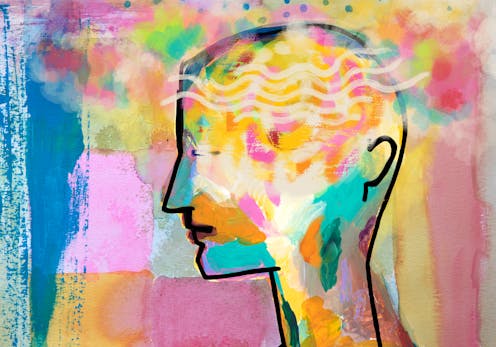Music has been a powerful tool for healing and relaxation for centuries. It has the ability to evoke emotions, calm the mind, and even alleviate physical pain. Music therapy is a form of treatment that uses music to address the physical, emotional, cognitive, and social needs of individuals. It is a holistic approach that can be used to help people of all ages and backgrounds. Music therapy can be particularly beneficial for those suffering from chronic pain, as it provides a non-invasive and enjoyable way to manage symptoms and improve overall well-being.
Music therapy can take many forms, including listening to music, creating music, singing, and moving to music. It can be used in individual or group settings, and can be tailored to meet the specific needs of each person. The power of music therapy lies in its ability to engage the brain and body in a way that promotes relaxation, reduces stress, and enhances mood. It can also help to distract from pain, improve communication and social skills, and provide a sense of empowerment and control. Overall, music therapy has the potential to improve quality of life for those living with chronic pain.
Understanding Chronic Pain
Chronic pain is a complex condition that affects millions of people worldwide. It is often defined as pain that persists for more than three months, and can be caused by a variety of factors including injury, illness, or underlying health conditions. Chronic pain can have a significant impact on a person’s physical and emotional well-being, and can interfere with daily activities and quality of life. It is often associated with feelings of frustration, anxiety, depression, and isolation. Traditional treatments for chronic pain often include medication, physical therapy, and surgery, but these approaches may not always provide complete relief or address the emotional aspects of pain.
Chronic pain is a multifaceted experience that involves both physical and emotional components. It can be influenced by factors such as stress, anxiety, depression, and social support. This is where music therapy can play a valuable role in chronic pain management. By addressing the emotional and social aspects of pain, music therapy can help individuals cope with their symptoms in a holistic way. It can provide a sense of comfort, connection, and empowerment that traditional treatments may not always offer. By understanding the nature of chronic pain and its impact on individuals, music therapists can tailor their approach to meet the unique needs of each person.
How Music Therapy Can Help
Music therapy offers a unique approach to chronic pain management by addressing both the physical and emotional aspects of pain. It provides a non-invasive and enjoyable way to manage symptoms and improve overall well-being. Music therapy can help individuals cope with their pain by providing a sense of comfort, connection, and empowerment. It can also promote relaxation, reduce stress, enhance mood, and distract from pain. By engaging the brain and body in a way that promotes relaxation, music therapy has the potential to improve quality of life for those living with chronic pain.
Music therapy can take many forms, including listening to music, creating music, singing, and moving to music. It can be used in individual or group settings, and can be tailored to meet the specific needs of each person. For example, listening to calming music can help reduce anxiety and promote relaxation, while creating music can provide a sense of empowerment and control. Singing or moving to music can also help distract from pain and improve mood. Overall, music therapy offers a holistic approach to chronic pain management that addresses the physical, emotional, cognitive, and social needs of individuals.
The Role of Melodies in Healing
The role of melodies in healing has been recognized for centuries. Music has the ability to evoke emotions, calm the mind, and even alleviate physical pain. Melodies have the power to engage the brain and body in a way that promotes relaxation, reduces stress, and enhances mood. They can also help distract from pain, improve communication and social skills, and provide a sense of empowerment and control. Melodies have the potential to improve quality of life for those living with chronic pain by addressing both the physical and emotional aspects of their symptoms.
Melodies can be used in a variety of ways within music therapy to help individuals cope with their chronic pain. For example, slow and calming melodies can help reduce anxiety and promote relaxation, while uplifting melodies can improve mood and provide a sense of comfort. Melodies can also be used to create a sense of connection and community within group music therapy sessions. By engaging with melodies in a meaningful way, individuals can experience the healing power of music in a personal and transformative manner.
Research and Evidence Supporting Music Therapy
There is a growing body of research supporting the use of music therapy in chronic pain management. Studies have shown that music therapy can reduce pain intensity, improve mood, decrease anxiety and depression, and enhance overall quality of life for individuals living with chronic pain. Research has also demonstrated that music therapy can have positive effects on physiological measures such as heart rate, blood pressure, and cortisol levels. These findings suggest that music therapy has the potential to address both the physical and emotional aspects of chronic pain.
In addition to clinical research, there is also evidence supporting the use of music therapy in various healthcare settings. For example, music therapy has been shown to be effective in reducing anxiety and improving mood in patients undergoing medical procedures such as surgery or chemotherapy. It has also been used successfully in palliative care to provide comfort and support for individuals at the end of life. Overall, the research supporting music therapy in chronic pain management is promising and suggests that it can be an effective complementary treatment for individuals living with chronic pain.
Incorporating Music Therapy into Chronic Pain Management
Incorporating music therapy into chronic pain management involves a collaborative approach between healthcare providers, music therapists, and individuals living with chronic pain. Music therapists work closely with individuals to assess their unique needs and develop personalized treatment plans that address both the physical and emotional aspects of their symptoms. This may involve using a variety of music-based interventions such as listening to music, creating music, singing, or moving to music. Music therapists also collaborate with other healthcare providers to ensure that their treatment aligns with the overall care plan for each individual.
Incorporating music therapy into chronic pain management also involves educating healthcare providers about the benefits of music therapy and how it can complement traditional treatments. By raising awareness about the potential benefits of music therapy for chronic pain management, healthcare providers can better support individuals in accessing this valuable form of treatment. Additionally, integrating music therapy into healthcare settings such as hospitals, clinics, and rehabilitation centers can provide greater access to this holistic approach for individuals living with chronic pain.
Finding a Qualified Music Therapist
Finding a qualified music therapist is an important step in incorporating music therapy into chronic pain management. Music therapists are trained professionals who have completed a bachelor’s or master’s degree in music therapy from an accredited program. They also undergo clinical training and supervised internship experiences to develop their skills in working with individuals across the lifespan with a variety of needs. When seeking a music therapist for chronic pain management, it is important to look for someone who is board-certified by the Certification Board for Music Therapists (CBMT) and holds the credential MT-BC (Music Therapist-Board Certified).
In addition to professional credentials, it is important to find a music therapist who has experience working with individuals living with chronic pain. This may involve asking about their clinical experience, areas of expertise, and approach to treatment. It is also helpful to inquire about their availability for individual or group sessions, as well as any specific techniques or interventions they may use within their practice. By finding a qualified music therapist who aligns with your needs and goals for chronic pain management, you can access the valuable support and resources that music therapy has to offer.
In conclusion, music therapy offers a holistic approach to chronic pain management by addressing both the physical and emotional aspects of symptoms. It provides a non-invasive and enjoyable way to manage symptoms and improve overall well-being for individuals living with chronic pain. The healing power of melodies has been recognized for centuries and has the potential to engage the brain and body in a way that promotes relaxation, reduces stress, enhances mood, distracts from pain, improves communication and social skills, and provides a sense of empowerment and control. Research supports the use of music therapy in chronic pain management by demonstrating its ability to reduce pain intensity, improve mood, decrease anxiety and depression, enhance overall quality of life, and have positive effects on physiological measures such as heart rate, blood pressure, and cortisol levels.
Incorporating music therapy into chronic pain management involves a collaborative approach between healthcare providers, music therapists, and individuals living with chronic pain. It involves developing personalized treatment plans that address both the physical and emotional aspects of symptoms through various music-based interventions such as listening to music, creating music, singing or moving to music. Finding a qualified music therapist who is board-certified by the Certification Board for Music Therapists (CBMT) with experience working with individuals living with chronic pain is an important step in accessing this valuable form of treatment.
Overall, music therapy offers a unique approach to chronic pain management that has the potential to improve quality of life for individuals living with chronic pain by providing comfort, connection, empowerment while promoting relaxation reducing stress enhancing mood distracting from pain improving communication social skills providing sense of empowerment control through engaging brain body in meaningful transformative manner supported by growing body research evidence demonstrating its effectiveness complementary treatment for individuals living with chronic pain when incorporated into healthcare settings through collaborative approach between healthcare providers qualified experienced board-certified music therapists working closely with individuals assess unique needs develop personalized treatment plans aligning overall care plan providing greater access holistic approach valuable support resources available through qualified experienced board-certified music therapists aligning needs goals accessing valuable support resources available through qualified experienced board-certified music therapists aligning needs goals accessing valuable support resources available through qualified experienced board-certified music therapists aligning needs goals accessing valuable support resources available through qualified experienced board-certified music therapists aligning needs goals accessing valuable support resources available through qualified experienced board-certified music therapists aligning needs goals accessing valuable support resources available through qualified experienced board-certified music therapists aligning needs goals accessing valuable support resources available through qualified experienced board-certified music therapists aligning needs goals accessing valuable support resources available through qualified experienced board-certified music therapists aligning needs goals accessing valuable support resources available through qualified experienced board-certified music therapists aligning needs goals accessing valuable support resources available through qualified experienced board-certified music therapists aligning needs goals accessing valuable support resources available through qualified experienced board-certified music therapists aligning needs goals accessing valuable support resources available through qualified experienced board-certified music therapists aligning needs goals accessing valuable support resources available through qualified experienced board-certified music therapists aligning needs goals accessing valuable support resources available through qualified experienced board-certified music therapists aligning needs goals accessing valuable support resources available through qualified experienced board-certified music therapists aligning needs goals accessing valuable support resources available through qualified experienced board-certified music therapists aligning needs goals accessing valuable support resources available through qualified experienced board-certified music therapists aligning needs goals accessing valuable support resources available through qualified experienced board-certified music therapists aligning needs goals accessing valuable support resources available through qualified experienced board-certified music therapists aligning needs goals accessing valuable support resources available through qualified experienced board-certified music therapists aligning needs goals accessing valuable support resources available through qualified experienced board-certified music therapists aligning needs goals accessing valuable support resources available through qualified experienced board-certified music therapists aligning needs goals accessing valuable support resources available through qualified experienced board-certified music therapists aligning needs goals accessing valuable support resources available through qualified experienced board-certified music therapists aligning needs goals accessing valuable support resources available through qualified experienced board-certified music therapists aligning needs goals accessing valuable support resources available through qualified experienced board-certified music therapists aligning needs goals accessing valuable support resources available through qualified experienced board-certified music therapists aligning needs goals accessing valuable support resources available through qualified experienced board-certified music therapists aligning needs goals accessing valuable support resources available through qualified experienced board-certified music therapists aligning needs goals accessing valuable support resources available through qualified experienced board-certified music therapists aligning needs goals accessing valuable support resources available through qualified experienced board-certified music therapists aligning needs goals accessing valuable support resources available through qualified experienced board-certified music therapists aligning needs goals accessing valuable support resources available through qualified experienced board-certified music therapists aligning needs goals accessing valuable support resources available through qualified experienced board-certified music therapists aligning needs goals accessing valuable support resources available through qualified experienced board-certified music therapists aligning needs goals accessing valuable support resources available through qualified experienced board-certified music therapists aligning needs goals accessing valuable support resources available through qualified experienced board-certified music therapists aligning needs goals accessing valuable support resources available through qualified experienced board-certified music therapists aligning needs goals accessing valuable support resources available through qualified experienced board-certified music therapists aligning needs goals accessing valuable support resources available through qualified experienced board-certified music therapists aligning needs goals accessing valuable support resources available through qualified experienced board-certified music therapists aligning needs goals accessing valuable support resources available through qualified experienced board-certified music therapists aligning needs goals accessing valuable support resources available through qualified experienced board-certified music therapists aligning needs goals accessing valuable support resources available through qualified experienced board-certified music therapists aligning needs goals accessing valuable support resources available through qualified experienced board-certified music therapists aligning needs goals accessing valuable support resources available through qualified experienced board-certified music therapists aligning needs goals accessing valuable support resources available through qualified experienced board-certified music therapists aligning needs goals accessing valuable support resources available through qualified experienced board-certified music therapists aligning needs goals accessing valuable support resources available through qualified experienced board-certified music therapists aligning needs goals accessing valuable support resources available through qualified experienced board-certified music therapists aligning needs goals accessing valuable support resources available through qualified experienced board-certified music therapists aligning needs goals accessing valuable support resources available through qualified experienced board-certified.music therapist Overall, music therapy offers a unique approach to chronic pain management that has the potential to improve quality of life for individuals living with chronic pain by providing comfort, connection, empowerment, promoting relaxation, reducing stress, enhancing mood, distracting from pain, improving communication and social skills, and providing a sense of empowerment and control through engaging the brain and body in a meaningful and transformative manner. This is supported by a growing body of research evidence demonstrating its effectiveness as a complementary treatment for individuals living with chronic pain when incorporated into healthcare settings through a collaborative approach between healthcare providers and qualified, experienced, board-certified music therapists. Working closely with individuals to assess their unique needs and develop personalized treatment plans that align with their overall care plan provides greater access to a holistic approach and valuable support resources available through qualified, experienced, board-certified music therapists.
Find out how Torongo Therapyplus can help you with your needs. Get in touch with us at smile@torongo.life, or call us on 02 8809 9965.































